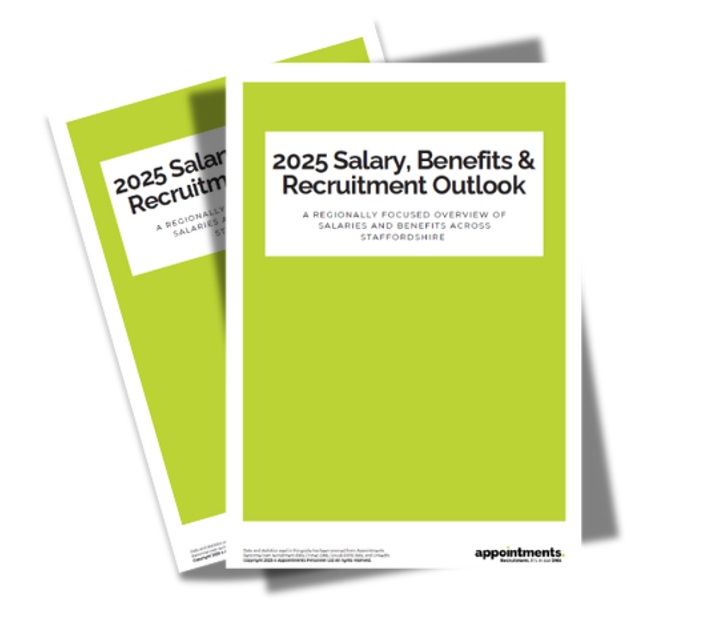
Share Article
Preparing for your online interview
Many job interviews are being conducted online now. First round interviews are often held using Zoom, Teams and other conferencing technology. So, are you ready to create a great 1st impression and perform at your next remote interview? We share some tips to help you prepare for you next remote interview on your computer.
Check you have all the details
What date and time is your interview, make sure that’s UK time? Who is your interview with and what is their role? Ask if there will be more than one interviewer. Look the interviewers up on LinkedIn, it’ll help you know who they are, what their role is and will stop you getting their names mixed up.
Check you have the the telephone numbers. Are they calling you on your mobile and what number will they be calling from? Have their email to hand too, just in case the call drops out, so you’ll be able get back in touch.
If the interview detail isn’t clear get in touch and just check you have the correct information. You’ll be grateful you didn’t have to deal with a missed call or join the meeting late.
Making a good 1st impression
Be prepared to make some small talk while you are waiting for others to join the meeting. Interviews are not just about your skills but whether you will fit into a team.
Make sure you dress appropriately. Even though you haven’t made the trip into their office, you still want to make a good 1st impression and look like you’ve made an effort. Smart business dress is probably best.
Preparing the scene
If you’re at home make sure you’re away from family, roommates, or pets. At work, this may mean booking yourself a conference room where you won’t be interrupted.
Think about what’s behind you on screen. If you’re having an interview from home, make sure your background is tidy and there is nothing inappropriate in sight. You don’t have to remove everything and have a completely blank backdrop, after all your home tells people a lot about you as an individual.
Make sure no one is going to interrupt you, put your phone on silent, lock the door so the children can’t barge in to say hello. Have a glass of water to hand in case nerves give you a dry mouth.
Use notes
The great thing about an online interview is you can have a notepad with some prompts jotted down to hand. It’s normal to feel nervous, having some brief bullet points will help remind you to mention key points in your answers and will help calm nerves. Writing some notes also helps you prepare answers beforehand too.
However, don’t use your notes to read out answer, you’ll just sound robotic if you read your answers off a script. Practice answering questions to make your answers sound more natural.
Have other key documents to hand
Having the job description and your application or CV on hand means that if the recruiter refers to specific points in these during the interview you have them next to you just to help remind you. It will just help you know what they’re talking about.
Make sure the technology won’t let you down
It’s always advisable to check what technology is being used for your interview. If you need to download something onto your phone or computer make sure you do this, at least the day before, in case you have any issues. Check if you have an email invitation to the interview. This will normally give you a link to the platform being used, with instructions to help you download the app.
If it’s new technology that you’re not familiar with, check you know how to use it, have a go at logging into the meeting. It’s a good idea to do this anyway, just to check everything is working ok and to give yourself a refresher. Also it will give you an idea about how long this will take so you give yourself plenty of time on the day to log into the meeting before the interview is due to begin.
If you’ve been asked to do a presentation, make sure you know how to share your screen. Get use to talking into the camera, so you’re making eye contact with your interviewer.
Check that the internet connection in the room you are using is strong, to avoid drop out.
Do Your Research
Treat it like any other interview and make sure you’re prepared. Preparation will help you get great answers ready and will make sure you don’t miss this chance to impress the recruiter.
Review the job description again to remind yourself about the role you’re interviewing for and prepare answers for questions the interviewer may ask you.
Do some research into the company. Browse their website, check out any recent news updates, read their employee testimonials and check out their social media. This will help you get a feel for the company’s overall vibe, their mission, history and what’s important to them. You’ll also be able to tailor your interview answers and ask questions that show you’ve done your homework and are genuinely interested in joining the company.
Practice answering common questions
Prepare your “tell us a bit about yourself answer”, we give some tips in our preparing for an interview blog. Think about the skills and experience they are looking for in the job description and what questions you may be asked. Practice answering questions, maybe ask a friend to give you a dummy interview online. It will get you use to talking into a screen and looking into camera.
Compile some questions to ask the interviewer at the very end, this is your chance to check the job and company is right for you too.
Think about what salary you would accept
Have this ready just in case it comes up, you don’t want to be on the back foot. If they don’t ask you about salary, it’s a good idea to wait for a later round to bring it up yourself.
Appointments Personnel have done research into local jobs and salaries and will be able to give you some guidance on this and also when it’s best to ask this question. Give our recruitment team a call if you’re unsure about the market value of jobs.
Speak clearly and allow time for the technology to catch up
During the interview don’t be afraid to leave short pauses between questions and answers, to make sure they’ve finished asking the question.
Make sure you listen to the questions – show you are listening by looking at them and nodding. If you didn’t hear the question you can ask your interviewer to repeat it, or you could paraphrase the question to make sure you heard it correctly.
If the recruiter interrupts you during your answer, stop speaking and listen to what they are saying. It may be that their technology is causing issues or they may want to refocus where you’re answer is going or probe a bit more.
Keep animated
It’s important to keep yourself animated. Show your enthusiasm for the job and the role. Smile when you talk, use gestures if you would normally, speak clearly and make sure you’re not mumbling. When you practise your interview with your friend get feedback on how you are coming across, you want to appear natural too.
Say thank you
After the interview thank them for giving you the opportunity to interview for the job and check what will happens next. How many more people are they interviewing? When are you likely to hear from them again?
After your interview
Take a note of any points you want to remember. Any information they shared about the job – where you will work, answers to the questions you asked. This will help you be prepared if you get to a second round of interviews.
Send a thank you note
Your interview notes will also come in useful when you prepare a quick thank you email to your contact. Do this the same day as your interview if possible. This should be short and reaffirm your interest in the job and the company, highlight any topics during the interview that stuck out and is good job search etiquette.
For more help to prepare for your interview you can register for our interview technique webinar. Or ask your recruitment consultant for advice, contact us on 01782 338787 for more support.










